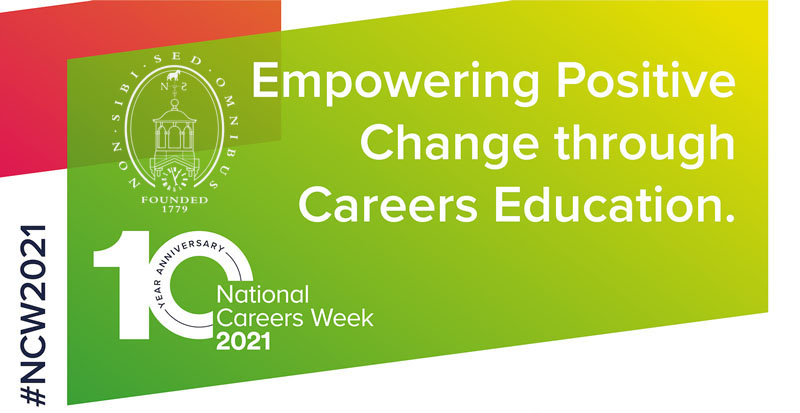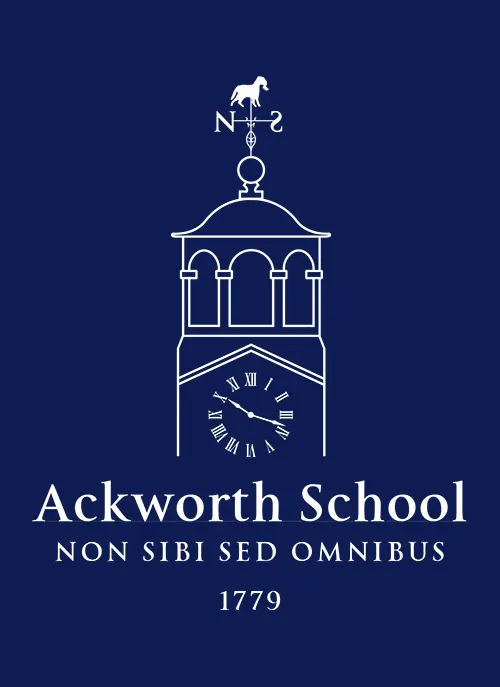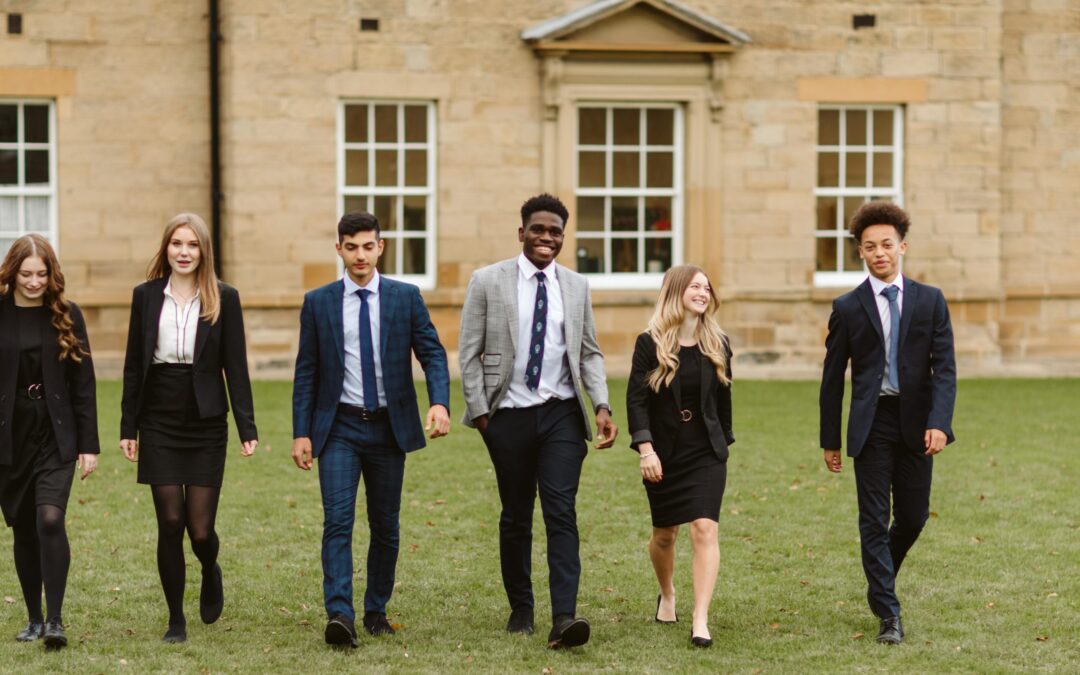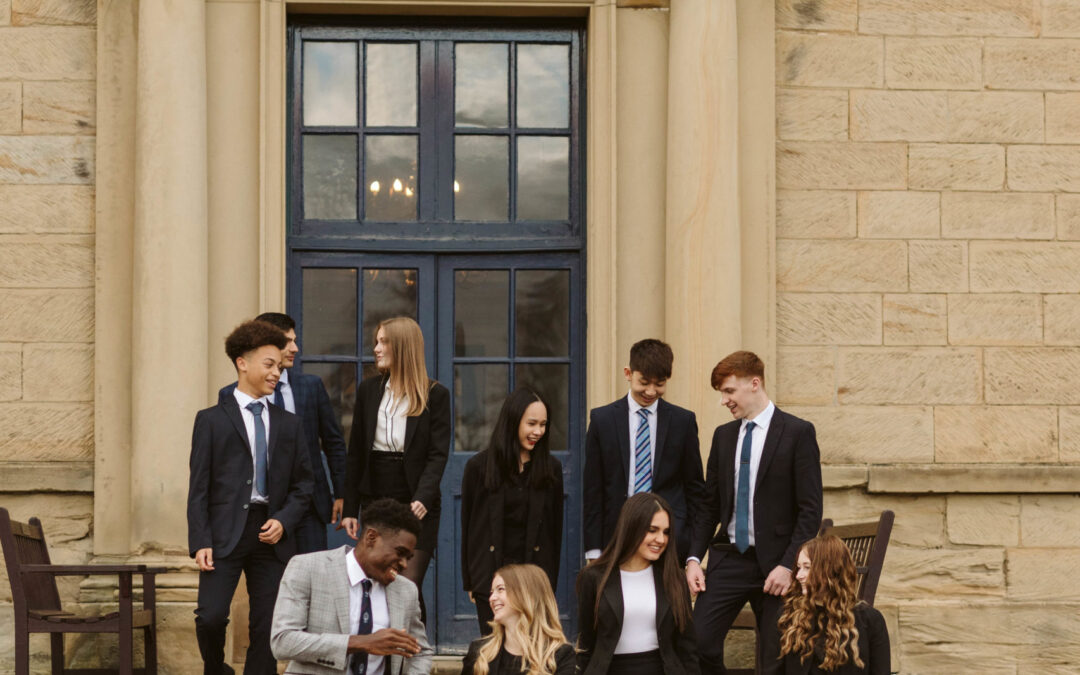
Nov 10, 2020 | Ackworth School, Sixth Form
Alexandra Collingwood, Head of our Sixth Form, shares why boarding school could be the best place for a sixth former to thrive and flourish, both academically and pastorally.

Head of Sixth Form, Alexandra Collingwood guides students on how to get the best out of their studies using their iPads supplied by the school.
Here, she lists her top five benefits of boarding for sixth form students:
1) Bolsters academic growth
Our value-added is the best in the area and is testament to our philosophy towards learning. Every single student progresses tremendously from the start of their time with us, to the end. They consistently perform better than what their targets and previous academic performance indicate that they should.
Sixth form students who board with us have access to tutors ‘out of hours’ during designated prep (study) time, so, not only are they making strides in their learning in school, but they have the chance to further this by getting extra educational support. Even outside of prep time, thanks to our digital learning approach, advice from teachers and tutors is only a message or email away.
2) Incredible facilities
Ackworth School is a truly beautiful setting to learn and relax.
We have a state-of-the-art gym, sports hall, tennis courts and music centre with 10 Steinway pianos set in phenomenal picturesque 18th Century grounds.
With advanced facilities, sixth form students have everything they need to excel at their chosen A-levels and also take part in extra-curricular activities in and out of school hours to enhance their learning – this may help when it comes to applying to universities.

Set in expansive grounds in the West Yorkshire countryside, Ackworth provides a safe and rich learning environment.
3) Close-knit family feel
With our sixth form attached to the school, we maintain a real family community here, and, as we’re non-selective, there’s plenty of opportunity for students to mix with people from all different backgrounds, ages and places.
We have students travelling from across the UK and other parts of the world to attend Ackworth School. Boarding with us helps build and nurture life-long friendships, and encourages social growth. It really is a home away from home.
4) Oxbridge Pathways Programme
Sixth form is an integral time in a young adult’s life. Their leaving destination will depend not only on their academic success, but also the skills they gain, and how prepared they are for upcoming applications and interviews.
We make sure to cover everything with our bespoke Oxbridge Pathways Programme. Designed and managed by Helen Batty – who has a wealth of experience in Oxbridge admissions procedures and processes – sixth form students are taught everything they need to know to achieve a place at a top UK university and succeed after graduation.
5) Necessary support and pastoral care
The wellbeing of our pupils is paramount to their education. We make it our responsibility to ensure that all students have a positive environment to learn in as we believe this has a direct impact on whether they perform to the best of their abilities.
It is possible that giving sixth form students too much freedom too quickly (when they have come from an incredibly supportive secondary school environment) could hinder their progression, rather than help. Boarding school provides the right balance of support and freedom, allowing students to ease into adult life, knowing the safety net is still there if they need it.
As a Quaker school, we operate by our motto ‘Non Sibi Sed Omnibus’ or ‘not for oneself but for the good of others’. This encapsulates what we have stood for the last 240 years. A social conscience and an education go hand in hand at Ackworth School.
Visit our sixth form page for more information. Contact our admissions team at admissions@ackworthschool.com or call 01977 233 621.
Book a visit to one of our open events here.

Aug 20, 2020 | Ackworth School
Ackworth School pupils have done very well in what has been an incredibly difficult year. Most of them watched events last week with trepidation and were relieved when common sense prevailed.
The school’s results reveal that:
- 96% of pupils achieved 9-4 grades
- 82% achieved 9-5
- 67% achieved 9-6
- 50% achieved 9-7
- 32% achieved 9-8.
Anton Maree, Head said: “I am delighted with these results which compare very favourably with previous years. My teachers have worked hard to assess our pupils and they have all been awarded grades that are both fair and consistent and will stand up to close scrutiny by awarding bodies.”
Individual success stories include Charlotte and Jasmine who both achieved 10 9s and Harriet who achieved nine. Twins Harriet and Emily achieved an astonishing 16 9s between them and Rhys gained eight 9s. These are just a few of many wonderful achievements that have brightened the day for our pupils’ parents and their teachers after an astonishing two weeks of U-turns.
Dan Jones, Head of Fourth and Fifth Form said: “These results come as no surprise. Our Fifth form worked hard and were on track when schools were forced to shut by the government. Their results are a positive confirmation of their ability.”
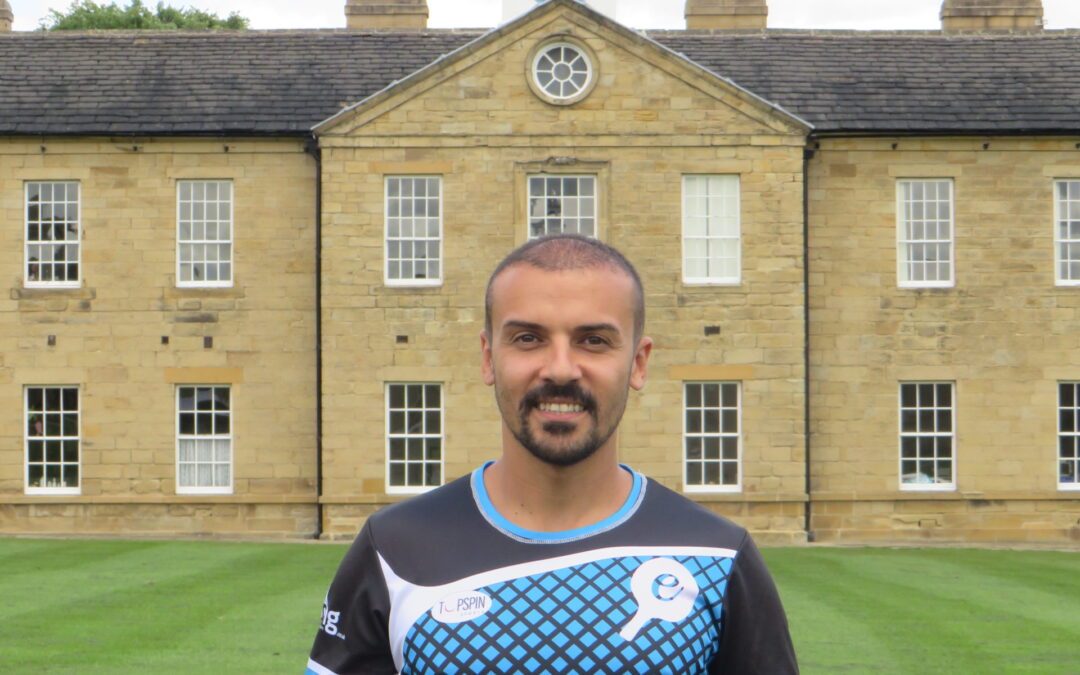
Jul 24, 2020 | Ackworth School, table tennis
Ackworth School’s new head table tennis coach, Eli Baraty has found himself flying – and living – all over the globe in pursuit of greatness. The renowned table tennis coach has a CV packed with coaching and playing successes and is now looking to drive Ackworth School into becoming an internationally recognisable table tennis powerhouse.

Ackworth School is pleased to announce its new Table Tennis Academy Coach, Eli Baraty, who joins the school in September.
An accomplished table tennis player, Eli has competed at the highest levels in the German league and represented England in Sweden and Switzerland.
The experience of the world stage has led Eli to work closely with five international set-ups, helping coach their best players. Simply put, this is why Eli has a preceding reputation as a high-performance coach; twenty of the players that have come through his academy or that he has coached at various schools, have gone on to be recognised international talents.
Schools coaching is where Eli really made his mark. In an academy just outside of London, Eli built up a then non-existent table tennis programme into a significant force to be reckoned with. Under his expert tutelage, his team served up no less than eight National Schools Championships and finished sixth in the World School Games – an unsurpassed British record.
Eli is quick to assert that he doesn’t want win-at-all-costs players; he champions a much more familial atmosphere:
“I’ve always built a family feel. So, it’s not always about, ‘OK, we’re machines, we’re going to go out there and beat everyone and walk around like we don’t care about anyone’.
“We care about one another; we have great camaraderie and we build that lovely family feel.”
A breath of fresh air blows through Baraty’s academies; his training is far removed from the more traditional one size fits all approach. It’s bespoke, holistic. Eli is much of the mind that a player can be much more than simply the sum of their parts. A 6’7” 250lb heavyweight boxer wouldn’t be trained in the same manner as a lightweight, so why does this thinking not extend to all forms of coaching? Eli thinks it should.
“I’m very holistic, I try to take into account each player’s specific needs.
“For example, I coach somebody who’s No. 5 in England at the moment. He’s nearly 7’! So, I have to find solutions for him to compete and win at the highest levels.
“I’ve got players who are fast, heavy, tiny, whatever. I’m always looking for what suits the individual player’s needs.
“Some trainers can only cater for a certain type of player, someone who’ll listen to them. Someone who’s young, small and fast.”
Unapologetically ambitious, Eli envisions success at Ackworth School, not only for the Table Tennis Academy, but for the pupils themselves – using the sport as a foundation for personal betterment.
“It’s about life skills, it’s about teaching people to come together as a team and to be the best you can be inside the sport and out.
“It’s like, look how successful you are in table tennis, you can be that successful in life as long as you put that focus in”
As the new Table Tennis Academy coach, Eli believes the foundations are set for something great at Ackworth. He sees the School becoming a table tennis destination, a hub, an internationally recognisable name.
“I want it to be a place where players from across Europe start to come, where national teams come to train. I want the School to be seen as the place to come if you want to be an elite performer
“If you have that dream of being a top player within table tennis, then this is your opportunity.”
Lofty goals indeed, though coming from the demonstrable successes of his past, certainly not unachievable.

How it all started
It’s 1996. The playgrounds were awash with Pokémon cards. Europe’s eyes are on England as the likes of Gascoigne, Shearer and McManaman plied their trade on home soil in the first major international football tournament since the glory days of ‘66. Football had come home.
On one auspicious night though, a 14-year-old Eli Baraty was not at home, but was staying at a friend’s house. Earlier that day, he and his friend had rented the film Forrest Gump; unbeknownst to Eli that this film would spark a career in table tennis, they settled in.
Then it happened.
That table tennis scene. The one where he’s playing against himself with half the table up. Eli watched on in amazement:
“I watched it and I just fell in love with that table tennis scene.
“The amazing thing was my friend had a table as well, so as soon as I saw the movie I thought ‘Oh my God I’ve got to play’. I just remember playing against the table the whole night while he went to bed.”
Eli may not have been the most considerate house-guest, but he was a great table tennis player. Four short years later, Eli had moved to France, playing professionally.
Then the proud owner of a Vespa, Eli drove himself from London to France – quite the considerable achievement when you consider the scooter struggled to do much more than 30mph! It was in France that, following a frank discussion with his coach, Eli had somewhat of an existential crisis.
“My coach basically said, ‘Look, you’re never going to be world champion’ and he was right, it was true. It hit me hard and I thought, ‘If I can’t be world champion, I don’t want to play at all’.”
On his return to England, Eli was offered a chance to ‘give back to the sport’. At just 18-years-old, Eli had taken his few tentative first steps down the road of table tennis coaching.
This is not to say that Eli stopped playing, however. In 2015 he battled through to the final 32 of the World Championships, losing out to eventual tournament winner, the England No.3 and Commonwealth Games gold medallist, Andrew Baggaly.
Find out more about applying to join Ackworth School’s Table Tennis Academy here or by calling our Admissions team on 01977 233 620.
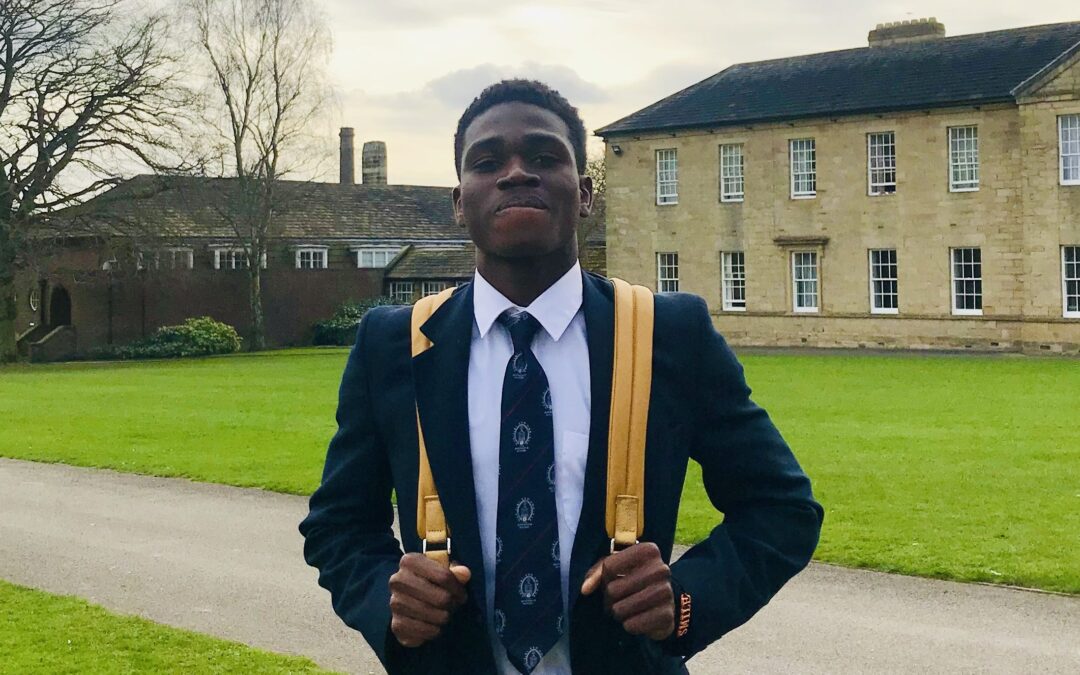
Jul 23, 2020 | Ackworth School
Lower 6th boarder Fakuma-Ilagha, from Nigeria, writes his poignant thoughts on equality and how racism can impact on young people.
The world seemed to be set ablaze by the aftermath of the incident that took place in Minneapolis, Minnesota, United States. On 25 May 2020. However, for most it was a matter of place and timing, as similar events had taken place in the past few years, with 2015 seeing more than 100 recorded cases of police brutality on black people which resulted in deaths, and even more unrecorded cases.
One would ask why these brutal events take place year in and year out? Why would someone would discriminate against another human being because of the colour of their skin, the texture of their hair or even the size of their hands?
Ultimately it all boils down to what we learn between the tender ages of 3 and 5 years old, as, during those years children begin to develop their personalities through interactions with their family. The morals of the family members will stick with the child for life but a child also learns from observations – what the child sees and hears.
In a situation where the father and mother spend a night out with their neighbours of a different race and cultural background, the parents may seem to be enjoying their night out but underneath there might be a different story…when the parents get home they might nag about how their neighbours eat, speak and dress. A stereotype then arises from this, where the parents conclude that this is just ‘how they all act’. Although the child has not said this, they have been listening and digesting all the remarks and concluded stereotypes. The real question now lays with how the child will treat other children of different ethnicities. There is only one answer to that: a child will display what he or she has been taught and influenced by.
Racism and prejudice affect us all, but in cases where young black students have to research the treatment of minority groups before they can apply for a school in that county, that is uncalled for!
Where parents have to lecture their sons and daughters to be ready and prepared for discrimination, that is sad. But when they tell their children to allow it most of the time, as responding will play to the stereotype of black people being too loud and easily angered, this causes an inferiority complex. The child does not feel like they are smart enough to understand a topic in school, because they feel all eyes are staring at them. When they go to a white, male dominated bar, or they just feel like they can’t try something new like skiing, then they feel strongly about the invisible barrier that has been inbuilt in them by society.
It is very easy to sideline all these issues if you are not affected by them, but it is also easy for the majority to become the minority with a change of location.
No one is immune to prejudice, racism and stereotypes or any form of discrimination. The only way to attain equality is for us to share in solidarity for one and another, educate ourselves and use this new-found knowledge to increase awareness in our families and communities.
My prayers go out to the families affected by racism.
Gelegu Fakuma-Ilagha
